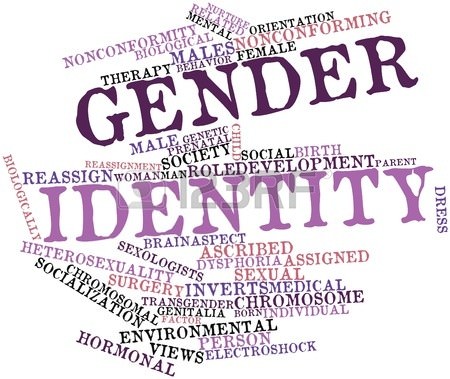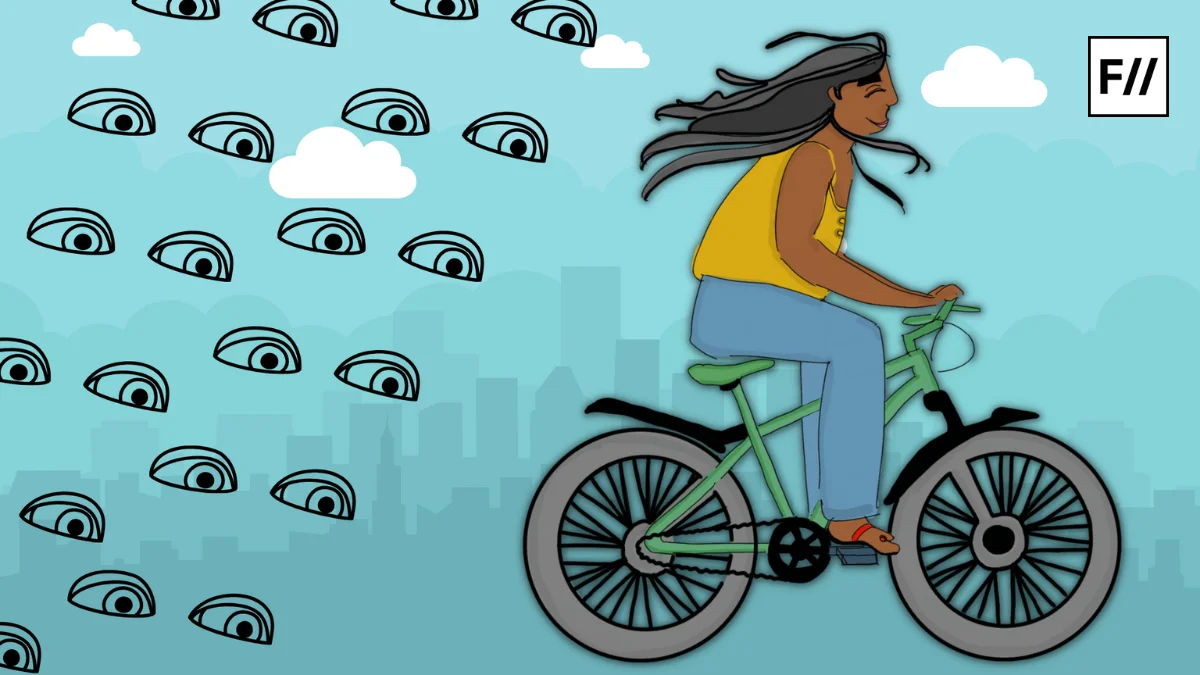“One is not born but rather becomes a woman”, Simone de Beauvoir had famously remarked in The Second Sex. But the truth is neither men nor women are born with gender at birth. With the happy confirmation, “It’s a boy!” and “It’s a girl!”, society forces upon gender on people for the first time. Thus, social indoctrination should be blamed for assigning gender. In infancy, the boy is dressed in blue, the girl in pink; in their childhood the boy gets guns as toys and the girl gets dolls. The former is the symbol of power, the latter is of domestication. It is ingrained in children when socialization begins that there are significant differences between the sexes. They are different in their expectations, performances, wants, needs and aspirations. These differences have boundary lines which cannot be overstepped as they are sacrosanct.
Rigorous gender socialization creates patterns of behavior and conditions people in such a way that differences are made to produce and assign gender-specific roles to men and women thereby restricting human capacities and their creative awakening. It all comes down to one formidable thing: Power. Power decides the status of gender identities—something social imagination visualizes and preaches—which hankers for a universalism that is conspicuous in its absence. A person’s identity is constructed not on the basis of the individual’s perception of the self but by normative evaluation of their selfhood. Normativity tries its hardest to box individuals into spaces that are recognizable, acknowledgeable and are not so revolting to conditioned morality. Thus, difference is indeed acknowledged but only when it serves to perpetuate the cycle of domination and subjugation, but hardly ever otherwise. This paints a very sorry picture of how selective recognition of difference has a considerable bearing in popular imagination.
Joan Scott argues that equality does not mean people have to become similar to each other in every conceivable way—which is impossible given that no two people can claim to be identical—but that such difference can be kept aside for all practical intents and purposes. But the presence of strict gendered norms and values act as deterrent in the rightful dismissal of differences that is practically inconsequential. But why are cultures so obsessed with difference? For one, when differences are not made sense of, when identities are not sacrosanct but are subversively polluted, they could wreck havoc on learnt behaviour, customs and practices. If the stability of meaning is lost, questions would be raised on who can rightfully dominate whom since an egalitarian arrangement is considered only an Utopian possibility. If identities become so vague that they cannot be distinguished between, uneven power dynamics based on gender would be in serious peril. For example, in a patriarchal structure, since men wield authority, the identity of women are shaped in relation to them. But when men and women are no longer strictly identifiable, power would vacillate between the two and would involve factors other than gender. Gender would cease to limit life chances. This is what postmodernism fiercely advocates.
Judith Butler observes in her groundbreaking work Gender Trouble that it is safe to call our gender expression a performance. Since it is “performance” of the most believable kind, transgressive forms of behavior, for example, transvestism, can break down the binary which thrives on normative forms of conformed behavior. The one message we have to spread far and wide is this: gender does not consist of heterosexual men and women with procreative abilities. Such a distorted notion fails to adequately represent diversities in expression. What we must come to terms with is that gender is unreliable to the extent that it can be called a social myth. It is a regret of massive proportions that gender identities have taken the form of a structure which only includes men and women who conform and ostracized are those who do not. Are the latter then genderless? The answer is: Yes, they are. They are as genderless as those who conform.
When we begin to understand that gender has been created to serve the purpose of providing stability to a system which prefers heterosexual, upper class, upper caste men belonging to the religious majority, “the veil of ignorance” (to borrow from John Rawls), is then finally lifted and being genderless becomes a boon. It is the first step to ensure that ascribed identities lose their meaning once and for all. If we understand that gender is a mechanism the founding motive of which was to create uneven power relations, gender loses its almost canonical relevance. It should stand for what it represents: a politically motivated design which has little foundation in biology. Through exclusion, on the basis of varied gender expression, power is monopolized by heterosexual men and this monopoly dismisses competing claims to power by various Otherized sections. The holders of traditional morality thus advocate this system because of the apparent stability it provides. But the fact is whenever the marginalized have felt their deprivation strongly, the authority wielding majority has been in crisis. Thus, to avoid crises of the most harrowing kind, an egalitarian arrangement is to be foregrounded.
How can collective action dismantle centers of patriarchal supremacy, is the next vital question we need to address. The baton does not fall on women or the gender non-conforming individuals, exclusively. It is on men as well. The reason for it is that uneven power dynamics of this system and its authoritarian expectations refuses give adequate space for freedom of expression to people and further forces them to adopt certain codes of conduct contrary to their natural wants and desires. Men are expected to be domineering, fiercely aggressive, controlling. In short, men must not deviate from traditional notions of masculinity. Men who find this too heavy a baggage to bear have to face the music. “Not man enough” is one of the most common accusations often hurled at them. But this has an advantage. This accusation can effectively be utilized to the disadvantage of the accuser. Being “not man enough” is perfectly fine. One’s existence does not require to be validated by intangible meanings of self imposed from outside. Liberty in a polluted state of meanings, let’s one construct their own selfhood. One can define themselves as they deem fit. For example, if you feel like a man in the body of a woman, what is your identity? Are you a man, or are you a woman, are you both or are you neither? The answer is hidden in your choice. Your choice determines your identity and it is exactly how it should be.
But choice does not operate in vacuum. It functions within the limitations imposed by the politics of identity or meaning in society. But one does have a lucrative option beyond such restrictions. There’s no need for labels, since they provide a fixed meaning to identity which should best remain fluid and changeable. But in a world that is fixated on unambiguous meanings, radical dissolution of meanings pose a problem for representation. How one identifies themselves has a bearing on the politics they are involved with. So, the lack of an identity can prove to be costly. But when the problem of representation is done away with in a world where such representation is no longer necessary, labels could be appropriately shunned. But as long as that is only a distant dream, identities must be thought of, at least, beyond the binary. This is how subversion should begin.
Gender is an expression of identity which is not limited to the body. Gender is not sex-specific. Just because majority of the population responds well to gender socialization does not prove deviant those who cannot or do not wish to do the same. Surprisingly enough, it has been tagged the “problem” of a ‘miniscule minority‘ and hence “unimportant” by some misguided holders of public morality. They find it difficult to accommodate non-normative identity expressions of those who overstep the boundaries of gender binary. Going by their unacceptable logic, even if the “problem” is that of a miniscule minority, losing the number game is not adequate ground for exclusion. Utilitarianism would probably vouch for “the greatest happiness of the greatest number” and conveniently ignore the minority but since today utilitarian principles have fallen out of favour in contemporary political discourse, there is greater favour for a Rawlsian kind of theory of justice which seeks to benefit the least advantaged. Hence, minority interests are valued. The more the minority interests are valued, the more hitherto marginalized identities have the chance of being included in the mainstream political agendas. Social justice hence rests on how minority identity issues are addressed. Thus, the immediate goal is to understand that gender as an identity marker is a social construction in need of progressive evaluation. When that is achieved, gender must be robbed off its power of determining power dynamics between individuals. Humanity would thus move a step closer to egalitarianism.
About the author(s)
Sohini Chatterjee holds an MA in International Relations from South Asian University, New Delhi. She researches and writes on gender, culture and politics. Her writing has appeared in Kindle Magazine, Cafe Dissensus Everyday, Huffington Post India, Coldnoon: Travel Poetics, The Lookout Journal etc.




